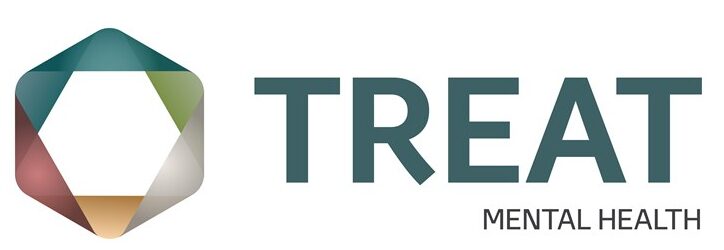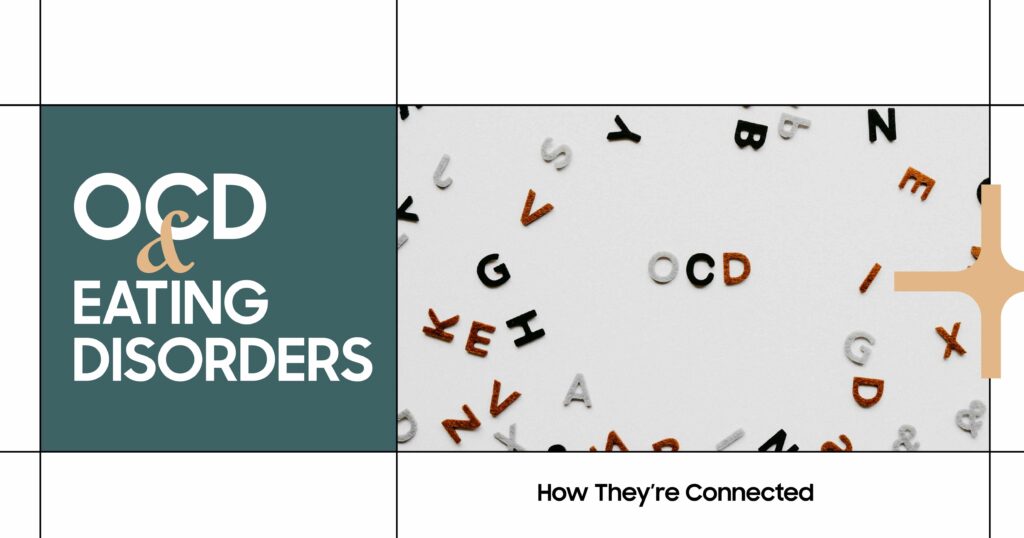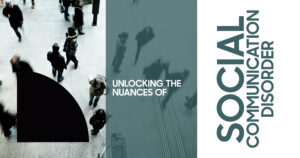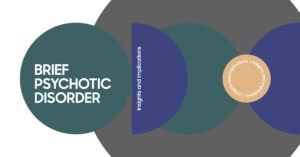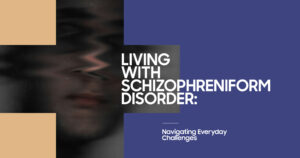Not many of us realize that research suggests that nearly 50% of individuals with eating disorders also experience symptoms of OCD, which is quite a considerable number. This connection is especially apparent in conditions like anorexia and OCD, where obsessive thoughts about food, weight, and body image often trigger compulsive behaviors like extreme or restrictive eating.
Food OCD is one of the common examples of how OCD coexists with eating disorders. People dealing with this condition often struggle with their strict, fixated diets, which badly affect their lives and health.
But what’s more important is knowing how doctors recognize and diagnose these co-occurring conditions. Can doctors diagnose OCD in individuals struggling with eating disorders, or is it often overlooked? The reality is that many individuals with both OCD and an eating disorder face challenges in getting the right diagnosis and care. If you’re wondering how to get diagnosed with OCD or how it relates to eating disorders, this blog will shed light on the key symptoms, risk factors, and effective treatment options
Understanding the Link Between OCD and Eating Disorders
OCD and eating disorders have separate characteristics, yet they exhibit considerable overlapping features, which make their diagnosis and treatment difficult.
The compulsive behaviors of OCD generally produce strict, fixated routines and repetitive actions that strongly interfere with food relationships, body image, and self-esteem. Thus, the statistics show that people with OCD are more prone to developing eating disorders – namely, anorexia nervosa and obsessive-compulsive eating disorder – as the obsessive cognition patterns drive the compulsive actions that champion both disorders as similar.
OCD has a direct causal relationship with eating disorders, which cannot be dismissed as random occurrences. Obsessive thoughts stemming from OCD tend to create conditions that result in abnormal eating patterns. People who deal with these two mental health conditions frequently lose sight of what counts as normal food behavior because their minds blend healthy eating with severe food limitations or overeating. The proper assessment and treatment of this condition requires knowledge about how obsessions and compulsions transform food and body perception.
Obsessions and Compulsions: A Comparison in OCD and Eating Disorders
OCD and eating disorders use obsessions and compulsions as core symptoms, even though these symptoms demonstrate different patterns.
| Feature | Obsessions in OCD | Obsessions in Eating Disorders |
| Nature | Intrusive, unwanted thoughts about contamination or harm. | Persistent fears about food, weight, or body image. |
| Emotional Impact | Causes anxiety, distress, and fear. | Leads to guilt, shame, and low self-esteem. |
| Example | Fear of making mistakes or being contaminated. | Fear of gaining weight or not being thin enough. |
| Feature | Compulsions in OCD | Compulsions in Eating Disorders |
| Nature | Repetitive behaviors to neutralize obsession-related anxiety. | Behaviors to control food intake, weight, or exercise. |
| Emotional Impact | Temporary relief from obsession-related anxiety. | Short-term relief from anxiety, but it often reinforces the disorder. |
| Example | Checking, washing, or counting repeatedly. | Restricting food, purging, and excessive exercise |
Anorexia, Bulimia, and Food-Related OCD Behaviors
Physical and mental damage ensues from both anorexia and bulimia and food-related obsessive thoughts. Bodily concerns regarding food combined with excessive body image anxieties and weight thoughts drive individuals to engage in self-harming behaviors such as dieting to extreme levels, purging, and bingeing episodes. People perform these impulsive behaviors because these obsessive thoughts generate intense anxiety that requires reduction or control.
The commonalities between eating disorders and obsessive-compulsive behaviors cause diagnosis challenges because many affected individuals manifest symptoms from both conditions. Distillating the relationship between eating disorders and obsessive-compulsive behavioral patterns permits healthcare providers to detect problems in their early stages and develop more appropriate treatment solutions. The propagation of treatment at the beginning of an eating disorder shows significant benefits for recovery rates.
Anorexia
Anorexia is diagnosed through an inability to maintain expected body weight at a minimum threshold, hunger-influenced motivations in the opposite direction, and distorted assessments of one’s perceived body image. The compulsions and obsessive behaviors of those with anorexia include an inordinate amount of constant calorie counting, weight checking, and avoidance of food. Treatment for anorexia is difficult because obsessive-compulsive behaviors exist to such a degree as to be part and parcel with a person’s sense of control and operation of their body.
Bulimia
The eating disorder bulimia drives people to change between eating large amounts while also bringing up their meals through vomiting, physical activity, and drug use. People who have bulimia nervosa develop obsessions that focus on food as well as body image, and cause them to engage in their compulsions.
For those who utilize the binge-and-purge method, they attempt to control their emotions through this cyclical action, complicated by their obsession over body weight and appearance. For those who have OCD concerning food and eating, their compulsive actions take on different forms.
Food-Related OCD
Those with food-related OCD focus not only on safe consumption but also on the rituals surrounding preparation to ensure cleanliness. Those with food-related OCD may set strict rules about what they will or will not eat, have specific rituals before eating occasioned foods, and refuse to eat certain foods.
Why These Conditions Often Occur Together
The coexistence of Obsessive-Compulsive Disorder (OCD) and eating disorders is not a coincidence. There are several reasons why individuals may experience both conditions simultaneously. Below are some key factors that contribute to the overlap:
- Both involve obsessive thoughts and compulsive behaviors.
- Genetic factors may increase susceptibility to both disorders.
- Similar brain regions are involved, particularly those related to anxiety and impulse control.
- Stress can generate OCD and eating disorder symptoms.
- Perfectionism is a common trait in both conditions.
- Both can be influenced by trauma or important life events.
- Obsessive thinking patterns and body images have a strong connection.
- Cognitive distortions contribute to the persistence of both conditions
Diagnosing OCD in the Context of Disordered Eating
Patients experience challenges in obtaining a proper diagnosis since OCD symptoms share characteristics with eating disorder symptoms. People who have OCD perform repetitive behaviors, including counting their food intake and food avoidance because of contamination fears, and hand washing to the point of excess.
An anorexic person who has OCD would wash groceries because of the fear of contamination and because they want to avoid high-fat foods. People with OCD tendencies and eating disorders exhibit food-related compulsions through behavior such as checking food arrangements and repeatedly asking about ingredients.
What Treatment Looks Like for Co-Occurring OCD and Eating Disorders
Combined medical treatment for OCD and eating disorders concentrates more on mental wellness than physical recovery. The actual transformation happens when an individual discovers how to control the thoughts and feelings that drive these behaviors. Patients who must deal with these disorders experience continuous fear and guilt alongside control issues, but they can successfully recover when they obtain appropriate therapeutic assistance.
The assistance provided by professionals represents an extremely important element. Health professionals interact with patients to provide streamlined assistance regarding their challenges. These experts assist patients in unlearning damaging patterns of behavior to establish better health practices. The power of healing emerges from personal dedication combined with trust in oneself and the backing of significant others in life. People start to trust the change process when they experience understanding and support without judgment.
The therapeutic process helps patients become stronger against their fears by teaching them how to manage emotions while creating healthy food relationships. The healing process can accelerate when patients receive love, patience, and get care from their family members and friends. Patients who undergo appropriate, consistent treatments for both eating disorders and OCD disorders achieve substantial recovery rates, reaching 60-70% in one year. The process of recovery exists along with supportive networks of people who assist those dealing with their challenges.
The Role of Cognitive Behavioral Therapy (CBT) and Other Approaches
The combination of OCD and eating disorders receives effective treatment through CBT. The therapy enables people to handle dangerous thinking patterns and compulsive behaviors which results in improved patterns of behavior and emotional management capabilities.
| CBT for OCD | CBT for Eating Disorders |
| Involves Exposure and Response Prevention (ERP) | Focuses on changing harmful food behaviors |
| Patients confront feared situations (e.g., food-related anxiety) | Challenging dieting rituals and extreme food rules |
| Refrain from compulsions (e.g., washing or checking) | Helps improve emotional coping skills for managing distress |
| Reduces anxiety over time by addressing irrational fears | Breaks rigid eating habits and fosters a healthier relationship with food |
| Teaches that many fears are irrational | Encourages flexibility in eating behaviors |
Other Approaches:
- Mindfulness-Based Cognitive Therapy
- Dialectical Behavior Therapy (DBT)
- Family Therapy
- Acceptance and Commitment Therapy (ACT)
- Interpersonal Therapy (IPT)
- Psychodynamic Therapy
- Exposure and Response Prevention (ERP)
- One-on-one sessions
Supporting a Loved One Struggling With Both Conditions
A person dealing with OCD and eating disorders requires appropriate care and education to achieve support effectively. Eating disorders and OCD are strongly linked to emotional issues instead of existing solely as physical manifestations. The proper treatment, together with support and patience, enables recovery for individuals dealing with these disorders. Here’s how you can help:
- Offer a safe space for them to share their feelings without judgment.
- Gently suggest seeking therapy or counseling.
- Support healthier behaviors and avoid reinforcing harmful rituals.
- Learn about OCD and eating disorders to better understand their challenges.
Seeking Guidance for Yourself or Someone You Know? Treat Mental Health Can Help
Individuals coping with OCD and eating disorders simultaneously can seek help at Treat Mental Health. Our organization offers personalized treatment approaches, including CBT, medication, and family therapy, to support patients in their recovery.
Contact Treat Mental Health today for personalized guidance and support. Let us help you take the first step toward healing!
FAQs
How are OCD and eating disorders related?
OCD and eating disorders are related to each other as they share many similar features, such as obsessive and compulsive thoughts. In both conditions, patients usually restrict themselves from food intake and become body-conscious.
Can OCD cause Eating Disorders?
OCD can not directly cause Eating Disorders, but at some point, obsessive thoughts and compulsive behaviors can become the source of eating disorders.
What are common OCD behaviors linked to food?
The common OCD behaviors with food involve extensive food washing, hand-washing, and strictly counting calories while also practicing strict food restrictions.
How is OCD diagnosed in people with eating disorders?
The diagnostic process requires distinguishing food behaviors affected by body image concerns from those influenced by obsessive-compulsive habits. To receive an accurate diagnosis, a person needs to undergo assessments from a qualified mental health expert.
What treatments work best for both OCD and eating disorders?
The following treatments work best for both OCD and eating disorders:
- Proper management of disordered eating patterns.
- Medications like SSRIs
- Family therapy
- Cognitive Behavioral Therapy (CBT)

